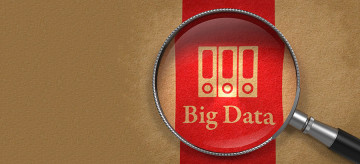- Advertising
- Bare Metal
- Bare Metal Cloud
- Benchmarks
- Big Data Benchmarks
- Big Data Experts Interviews
- Big Data Technologies
- Big Data Use Cases
- Big Data Week
- Cloud
- Data Lake as a Service
- Databases
- Dedicated Servers
- Disaster Recovery
- Features
- Fun
- GoTech World
- Hadoop
- Healthcare
- Industry Standards
- Insurance
- Linux
- News
- NoSQL
- Online Retail
- People of Bigstep
- Performance for Big Data Apps
- Press
- Press Corner
- Security
- Tech Trends
- Tutorial
- What is Big Data
Big data in use…healthcare

The latest in our series of blog posts that look at how big data is being deployed in different industries, this time focuses on healthcare.
Healthcare is an industry that appears ripe with potential to use big data in a really positive way - improving trial safety, disease surveillance, patient outcomes and even potentially curing any number of illnesses and diseases. But is the reality living up to that potential? And if not, what challenges need to be overcome to make it happen?
Big data, big potential
The very nature of healthcare – saving and improving people’s lives – means the potential is vast for big data deployment in the industry. It certainly sounds a more worthwhile and substantial deployment than say, a more targeted and tailored marketing campaign.
Google certainly thinks so, with its medical venture Calico launched last year to do ‘moonshot thinking around healthcare’ highlighting the potential for data to increase innovation in healthcare. Furthermore, the consultancy McKinsey has predicted in a report that big data could help cut US healthcare costs by up to $450bn, or 17 per cent.
But to date, there haven’t been too many concrete examples of organisations using big data in healthcare effectively. One example though, is Carolinas HealthCare System, which is using big data with patient profiling. It’s an organisation that operates medical centres in the Carolinas and is tracing patient behaviours - food purchases, gym attendance (or lack of) - to identify high-risk patients. Doctors are then intended to use this information to help change those patient behaviours and prevent problems before they become a real issue.
The patient information is obtained from data brokers, who monitor store loyalty programmes and credit card purchases. Carolinas HealthCare System can’t really obtain specific transaction information, but can use consumer behaviour to create predictive analytics which can act as an overlay for patient information and risk. For example, asthmatic cigarette buyers could be flagged as potential emergency room visitors for asthma attacks.
Addressing the challenges
But such examples are few and far between. There are technological challenges associated with big data in healthcare, as there are in any industry. Dealing with such massive data sets has its own issues and we have written extensively about how big data requires enormous computing power to manage and move such volumes. To get the most from big data, any organisation needs a big data infrastructure.
But with healthcare, perhaps the greatest challenges are not technological, they are attitudinal. There are issues around privacy, with many believing that patient data should remain private. In the Carolinas HealthCare System example discussed above, privacy advocates raised concerns immediately that this sort of patient knowledge could erode the doctor-patient relationship, and turn those conversations into ‘a potential inquisition’ about behaviour.
There also needs to be more of a concerted willingness across the industry to capture medical and health data on individuals, including details on how they react to different treatments, medicines, exercises, lifestyle changes and more. This modelling at the individual level is key to unlocking the potential of big data in healthcare.
Healthcare is perhaps the industry that could benefit mankind the most from big data and analytics. The technology is there, but attitudes need to catch up and do so quickly. Lives are at stake.
Readers also enjoyed:

Getting the most out of Impala


Leave a Reply
Your email address will not be published.